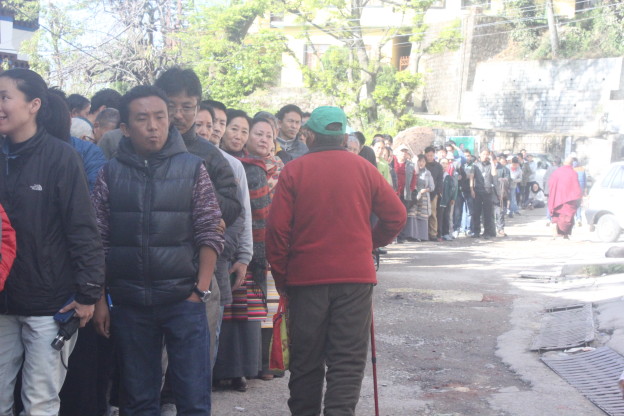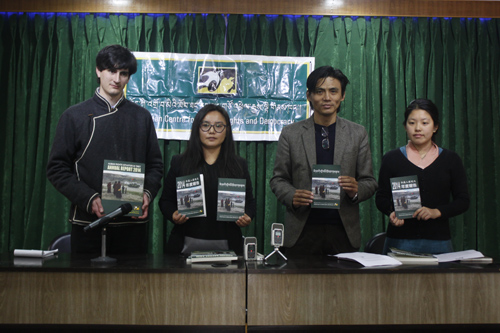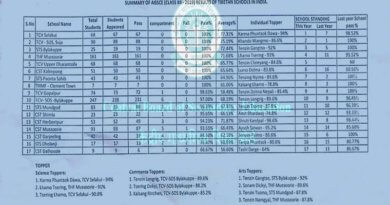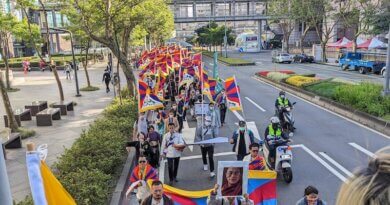Tibetans vote to elect Sikyong and members of Parliament
DHARAMSALA, Mar 21: Exiled Tibetans in over 30 countries cast their vote in the final elections held on Mar 20 to choose the future Sikyong or political leader of the Tibetan people and members of the 16th Tibetan Parliament-in-exile.
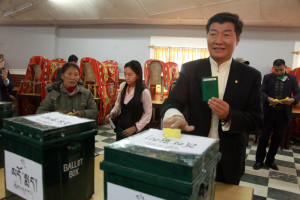
Thousands of Tibetans in Dharamsala, the exile residence of Tibetan spiritual leader His Holiness the Dalai Lama and the seat of the Tibetan government-in-exile (officially known as the Central Tibetan Administration) came to the polling booths to choose their future leaders. A total of ten polling booths were set up at various places in Dharamsala to facilitate maximum participation from the voters.
It is only the second time that exiled Tibetans are directly choosing their political leader since the devolution of political authority by His Holiness the Dalai Lama since 2011.
The incumbent political head of the Tibetan people, Sikyong Dr Lobsang Sangay who is seeking a second term is being challenged by Speaker of the Tibetan Parliament-in-exile, Mr Penpa Tsering for top most political post. Both the candidates cast their vote at Gangchen Kyishong where all the major offices of the Central Tibetan Administration are located.

(Image courtesy: Abhishek Madhukar)
With a bill unanimously passed in the Tibetan Parliament to elect a member of Parliament from Australasia and Asia, which include Australia, New Zealand and Asia (excluding India, Nepal and Bhutan), forty five members will be elected to the 16th Tibetan Parliament in exile. The current Tibetan Parliament-in-exile has 44 members- ten each from the three traditional Tibetan provinces of U-Tsang, Kham and Amdo; two members each from the four major schools of Tibetan Buddhism and Bon religion, and two members each from Europe and North America. A total of 94 candidates are competing in the election for the 45-seat Tibetan Parliament-in-exile.
Though local election commissions are required to announce their respective election results post counting of the votes, the Central Election Commission based in Dharamsala will be announce the official result of the final election on April 27, 2016.
Followig the preliminary election held in October, 2015 and Tibetan Election Commission’s decision to allow only two out of five candidates with the highest number of votes in the preliminary election, the incumbent Sikyong Dr Lobsang Sangay and Speaker Penpa Tsering campaigned extensively both in India and outside India where Tibetans in exile are located. Their supporters made extensive use of social media and organised numerous public talks for their respective candidates. Three public debates were also held between the two candidates in Dharamsala by National Democratic Party of Tibet (NDPT), Voice of America and Radio Free Asia. However, the issues (or non-issues) raised by both the candidates in their public talks and the debates left many Tibetans disheartened as supporters of both the candidates got involved in regionalism as Sikyong Sangay hails from traditional Kham province and Speaker Tsering hails from Amdo province.
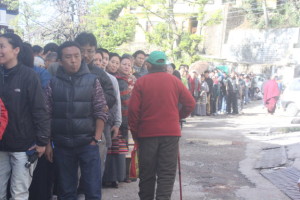
Tenzin Gelek, a student at Tibetan Medical and Astro Institute in Dharamsala who had come to exercise his right to vote at Gangchen Kyishong said: ” I’m very happy that I’m able to make use of the gift of democracy so generously bestowed to us by His Holiness the Dalai Lama. But I’m quite disheartened at the way this election was fought because people got involved in regionalism which became one of the main factors to decide who to vote for and a source of unnecessary criticism and personel attacks. It is very sad. Tibetans should utilize their right to vote, but at the same time should also caste their vote responsibly without getting influenced by others and decide for themselves who to vote for.”
“However, rather than just saying its sad, Tibetans should learn from the mistakes made in this election and strengthen our democracy for the future,” Tenzin added.

